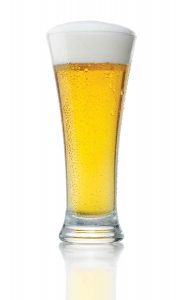Parents would be remiss to not take advantage of the teachable moments society has placed before us in recent weeks. I will admit it’s very tricky. The nation watched as our lawmakers were tasked with questioning a Supreme Court nominee after he was accused of the sexual assault of a woman more than 30 years ago when they were both teenagers.
What came up — teenage drinking, kids home alone, trauma, speaking up and more.
 I talked to my oldest daughter, Paige, about this, and it turns out I should have done better. I can recall asking her after she returned home from parties who was there, what happened and was there drinking. She tells me now that was the wrong approach. She felt I was interrogating her, so she basically told me what I wanted to hear, because she was afraid of letting me down rather than letting me know the truth.
I talked to my oldest daughter, Paige, about this, and it turns out I should have done better. I can recall asking her after she returned home from parties who was there, what happened and was there drinking. She tells me now that was the wrong approach. She felt I was interrogating her, so she basically told me what I wanted to hear, because she was afraid of letting me down rather than letting me know the truth.
First of all, Paige says, parents need to stop being naive. “Just because your child is smart, on a sports team or going to the best school doesn’t mean they aren’t doing things their parents would not approve of. Just because you have a ‘good kid’ doesn’t mean [he/she isn’t] involved in drinking, smoking pot or some other questionable behavior.”
My daughter told me that parents should try not to put their children on pedestals, regardless of how remarkable they are. “Bottom line, they are still kids, and they still need their parents. But as teenagers they need their parents to be receptive too,” she says. “Otherwise, it just makes it harder for them to tell you things, because as bad as they are feeling or if they need your help, they will be more concerned with you being upset and angry with them for their behavior.”
So, I should have let her know that she can talk to me instead of peppering her with questions about a party. I thought she knew. “Tell your children the things you expect of them as responsible citizens. Let them know you trust them until they show you that you can’t trust them,” she says. “Tell them you are there to help and repeat it frequently. It instills accountability, instead of fear.”
I would add to her wisdom that parents have to pay attention and encourage good practices. Tell them, “I don’t want you to drink but if you do, promise me you will call me so I can pick you up.” Tell your kids that, yes, you will be disappointed if they drink, but not so angry that you don’t want them to do the responsible thing.
Paige insists that when there are opportunities for dialogue, your teen will be more likely to tell you about things that happen to them. But this comes with a sense of trust. They have to trust that they can call us in any situation, even the most precarious ones — the ones you swear your child will never call you about because they aren’t “the type” to be involved in bad behavior.
Let’s face it: The last thing any of us wants is to not be there when our children need us most. We have heard so much about adults now telling their parents of sexual assault that took place when they were teens. Illegal teenage drinking is never OK, but being a resource for your children as it’s happening, rather than a source of fear, is OK.
Information is power. Arm your children with it. Share articles and stories about risky behaviors with them. Let them know that if they feel uncomfortable in a certain situation, they can always leave. They can call you.
I also feel it’s important that parents of young people do a better job of not allowing their children to have parties when no one is home. Going out of town and leaving them home was never something I considered.
I liked talking to Paige about this. She’s a young adult, now a lawyer, and she attended a prep school here in Baltimore. She’s seen a few things. I hope the wisdom stays with her for the day she becomes the mother of a teenager.








